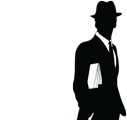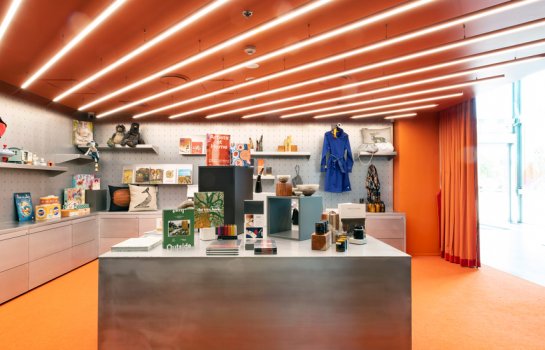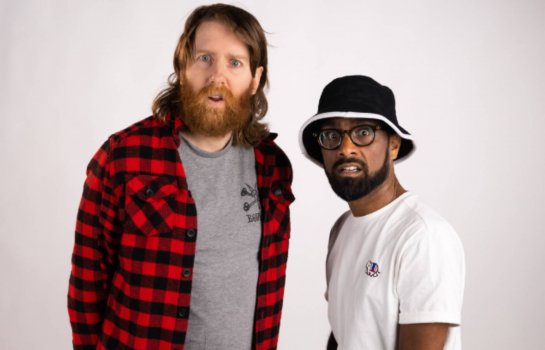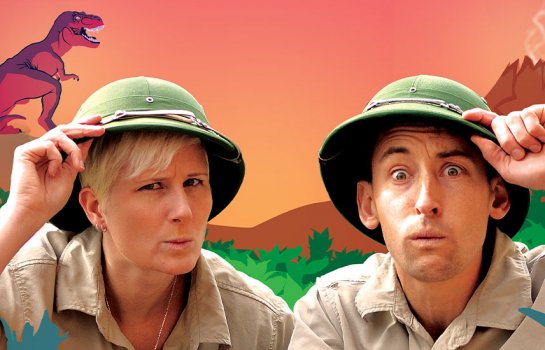Emily Tomlins, co-creator, director and performer, We Get It
There are many experiences that haven't been given a spotlight before. Theatre has to give the space for this to happen ...
The fight for gender equality is becoming an increasingly important issue in Australia (and the world at large) after generations of structural sexism has prevented many women from achieving their goals. Even though recent years has seen a shift towards better conditions for women in the workplace, much more work needs to be done before we see true equality. The entertainment industry is one particular field where it is exceptionally difficult for women to achieve success on their own terms. We Get It is a new theatre production from Elbow Room that examines the nature of sexism and racism is showbiz, taking place at the Brisbane Powerhouse from June 15–25. We spoke to co-director and performer Emily Tomlins about the show – its commentary on the entertainment industry and how it all came together.
First of all, I’d like to know what inspired you to pursue a career in performing arts?
To be honest it was just something I always did from a very early age. My mother asked if I wanted to do ballet. I said I was too shy to go but I was up for drama classes. I was five! She enrolled me and from there I didn’t stop. I always felt safe in my imagination – I felt safe on the stage as a kid. Theatre, more than anything, else felt like magic – It was home to me. By the time I became an adult it was all I was really interested in and all I could do.
How did the independent theatre company Elbow Room come about and what was the initial concept and focus that the group was built upon?
Marcel (the co-writer and co-director) and I had been working together for years as well as working professionally for other people and companies. When we moved to Melbourne together one of the main purposes was to form our own company. It was really important to us to generate our work. To talk about and give voice to the things that weren’t being talked about or being given a voice in the larger companies. When we started things were very small scale – Our mission statement has always been “to ask big questions in small spaces.” For us, theatre should be rigorous and challenging and confronting as well as entertaining.
Elbow Room will be staging We Get It at the Brisbane Powerhouse this month. What can you tell us about the performance and the inspiration for this story come from?
I have wanted to do a show like this for years. Obviously there is sexism and misogyny in every facet of our world and our beloved industry is no exception. We wanted to tackle this, to ask questions about it, to keep the conversation going. These issues or even the act of speaking out about them is no new thing, but the fact that they are still a concern means we have to keep talking and more importantly we have to keep listening. Our western stages have not only been historically predominantly male but also white. There are many experiences that haven’t been given a spotlight before. Theatre has to give the space for this to happen.
The show tackles the issues of structural sexism and racism in the entertainment industry – how did the team go about communicating the disadvantages inherent in the system in a way that engaged and entertained?
We started by asking an incredible group of women to go on this adventure with us and to our good fortune they said yes! At the beginning of 2015 we sat in a room for two weeks and talked, listened, laughed and cried. These women are exceptional – they are not only incredibly different to one another and come from very different backgrounds, they are not only strong and resilient, they not only have many stories to share about structural oppression they are also very generous and extraordinarily smart and funny. When you have those combinations in a group making the show entertaining is inevitable because all of the stories told in the show are personal to either our actors or our co-writer Rachel Perks. That means that they come from a deep place of honesty – this makes them very engaging.
What can audiences expect from the show, and what do you hope they take away from the performance?
I think expectations are a strange thing in theatre. I would like to suggest that they come with an open mind and heart. In this show we don’t claim to have any definitive answers. What I would love is for people to go away feeling charged up about the subject matter, maybe they might feel that their head has been rearranged by an account of someone else’s experience. I hope it lights a fire in someone’s belly – a fear that will make them want to keep talking or listening. I hope some people feel listened to or represented for the first time. The amazing and ultimately sad thing that we’ve found after doing this show last year in Melbourne is that so many people can relate to the experiences that are shared – and not only by people from our industry.
What do you think is the biggest benefit of shining a light on topical issues (such as gender inequality) through theatre?
Theatre is special. It’s special because you are experiencing something in real time with a room full of other people, often strangers. You have to breathe the same air as them and you get to hear and feel them respond. In an age where so much of our interaction happens away from each other online – where we don’t really even have to acknowledge each other’s humanity – I think that the theatrical experience is rare and very important, particularly when you are speaking about these kinds of things. To listen to, to really hear another person’s experience, it helps to be there with them a room. This is the magic of theatre.
You wear many hats in this production – co-creator, director and performer. What do you love most about being able to tackle a story in so many ways?
Running a company means that ultimately you get to have more creative input in to what is said and how. Usually as a company we work with our collaborators on each show from early on so that everyone has ownership over the work. This is the first time Marcel and I have directed together and I am incredibly grateful to be able to work alongside him. We have different ways of approaching the work which creates a nice balance. I guess to answer your question – when you feel very passionate about the subject matter, throwing yourself in to the work in multiple ways is such a gift, but of course I will always want to be a performer. As a director it’s nice to attempt to make the stage that safe thing I loved as a kid for other performers, particularly female performers.
What is the biggest challenge putting a show like this together?
There are always lots of challenges putting a piece of art together – funding and support are very hard to come by for artists in this country right now. Live theatre has its own unique challenges. Things often turn out quite differently to how you imagine, things go wrong, the unexpected can happen – but these are often the best parts too. You can’t get that feeling of excitement that comes from flying by the seat of your pants from a perfectly finished piece of art.
What would you say is your career highlight to date?
Oh my goodness that’s so hard! Seriously getting to actually make work with so many incredible people. Meeting people who also believe in the power of theatre and are passionate about bravely telling the truth about things that need hearing.
You can catch We Get It at the Brisbane Powerhouse from June 15–25. Head to the Brisbane Powerhouse website to purchase your tickets.





